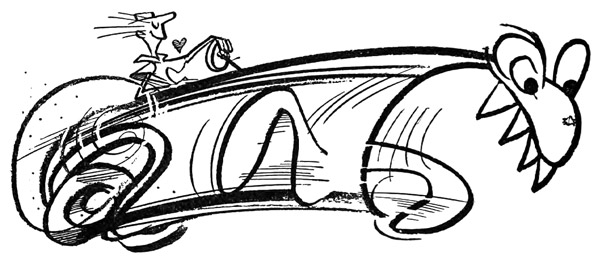
In the Vietnamese culture, women are educated to be nurturing, willing to sacrifice and wait for her husband even until they turn into stones. This expectation has shaped the Vietnamese women to be the most beautiful and respectful creatures on earth but at the same time it is a factor that somewhat contributes to the result of shaping the modern Vietnamese men into a lazy and macho type of man….the majority of Western men do not care much about the past of their partners. The brides are not required to get the approval from all of the husband’s family members. Western husbands usually don’t have restriction on the bride’s career, education level, family backgrounds, or virginity. For the Asian husbands other than Vietnamese, they don’t have many other choices from their own country due to “limited supply”. —“Vietnamese Women Marry Foreigners,” Vinh Dang, One Vietnam
You don’t know a fact from a hole in the wall, you Google-aided whippersnapper (or words to that effect);
Goldwater’s Big Sky;
why would you want to hurt my Whopper?
Literary writing (or, if you prefer, imaginitive writing) has certain advantages of its own, none of them weakened one bit by technology. It can often be funnier than other kinds of prose. It can deal more humanly with sex. It can say shameful things about family life—not by treating them as scandals but, on the contrary, by showing that they’re normal. More sins are confessed more deeply, through the screens of verse and make-believe, than you will ever find on a talk show or reality TV. Literature gives the best accounts of intimacy. Lena McFarland is right—you may not learn stuff you didn’t know from a work of fiction. But there can be great comfort in seeing the troubles of daily life put into words of power and beauty. —“Franzen and the Future, Redux,” Lorin Stein, The Atlantic
Isn’t “vintage Japanese subway manner posters” joke enough?
Daddy Juice! Daddy Juice! Daddy Juice!
we are all downtown now
Quicksand has always been more than a popcorn-spilling antic. As a literary metaphor and an expression of entanglement, the image dates back hundreds of years. As rhetoric, it once ruled the foreign-policy debate: Vietnam was “the quicksand war” before it was a quagmire; half a million troops were mired in the jungles of southeast Asia, swallowed up by a plot device of the Cold War. And it wasn’t so long ago that the phenomenon of real quicksand—not the metaphor, not the gag—flummoxed the nation’s leading physicists. Could all these anxieties be related? Might our fascination with quicksand reflect some more singular preoccupation—a broad cultural reckoning, even—with ambivalence and instability?…Why did quicksand slip below the surface? —“Terra Infirma,” Daniel Engber, Slate


